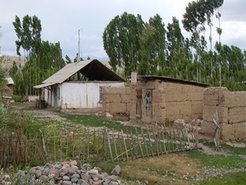Patron-Client Relations within the context of a Kyrgyz community, Kyrgyzstan

The aim of this project is to examine patron-client relations in a rural community in Kyrgyzstan. It starts with the hypothesis that patron-client relations form vital links in larger social networks and as such can be analysed as coping strategy in response to the specificities of the “market economy” that has developed in Kyrgyzstan. The significance of patron-client networks in contemporary Kyrgyzstan is its modified form determined by market-oriented informal transactions in conjunction with cultural and social values (respect, authority, solidarity).

The demise of the Soviet Union and economic changes led to social stratification i.e. inequality and class differentiation, above all in rural areas. Patron-client relations have become more open and transactions are based on economic interests. During the trial and error process of privatisation, an emerging moral crisis and ideological search in the post-Soviet period, especially the confusion of identities and the rule of a profit-oriented ideology, encourage people to seek more personal connections. People were flexible in accepting innovations and ready to resort to past, whether traditional or Soviet, and present experience in order to start a new life in a harsh free market economy.
Research Questions
- What are ‘patron-client relations’ in the Kyrgyz context? How do they come into existence? What are the main conditions and factors affecting patron-client relations? What are its functions?
- How have the Kyrgyz people re-constructed their social relationships in response to social, political and economic changes? What is the importance of these ties in the life of the community?
- How do people experience and interact with state bureaucracy, commercial market and other political elites? To what extent does the community's re-invention of traditions and an enduring Soviet mentality have an impact on shaping the nature and the forms of new patron-client relationships?

